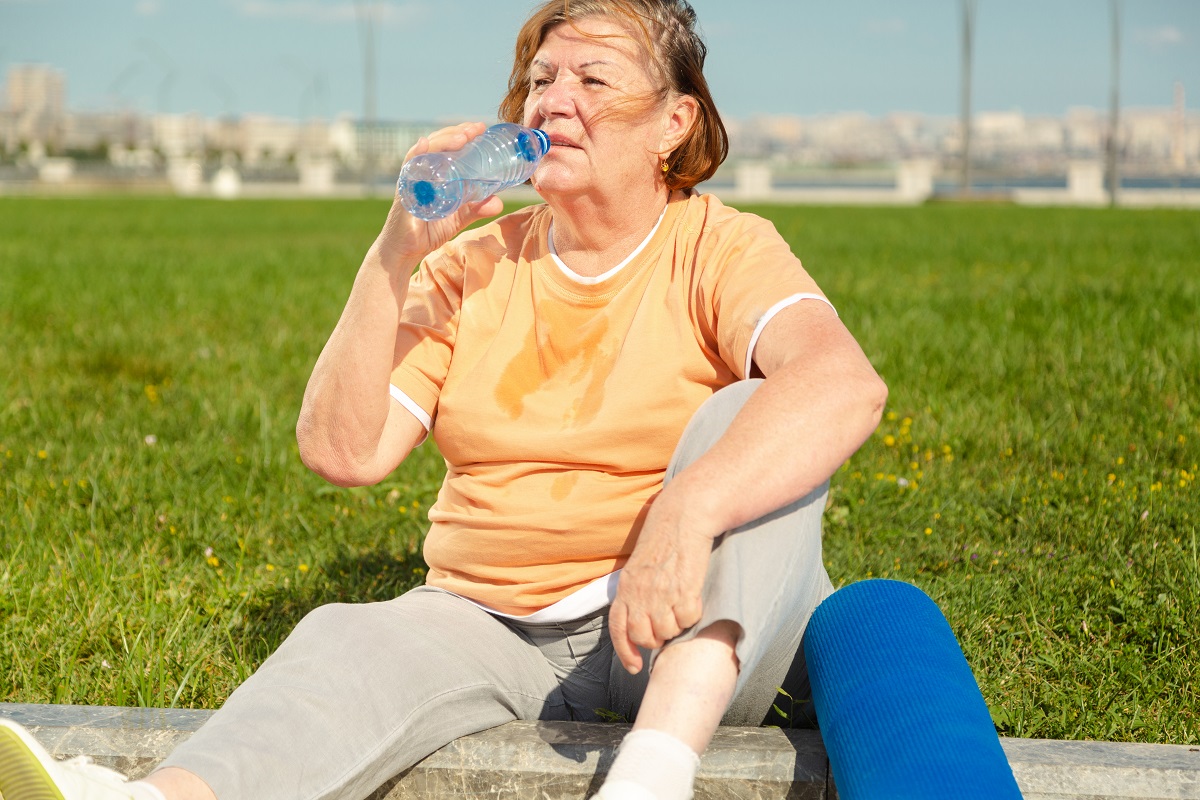As people age, the homeostatic mechanisms used to maintain electrolyte and water balance change so that their bodies do not retain enough water. Seniors may not be thirsty, hormone levels of antidiuretic hormone, atrial natriuretic peptide, and aldosterone change, and kidney functions decrease.
When elderly people have lower fluid intake than their body needs, they can be prone to severe dehydration, dangerous infections, and other health issues. Dehydration is often unrecognized in geriatric health care, putting the lives of elderly patients in danger.
A study of older adults at two senior centers in Los Angeles determined that about 40% of older adults in the United States are chronically underhydrated. Although the sample was small, the results line up with other scientific evidence.
Why is Dehydration A Problem In The Elderly
The prevalence of dehydration is higher in older adults than younger ones. In the U.S., people 65 years and above have the highest hospital admission rates because of hydration issues.
When the cells and blood vessels lack enough fluid, the body will experience short-term consequences, including having a dry mouth and skin, low systolic blood pressure, dizziness, weakness, and producing dark-colored urine.
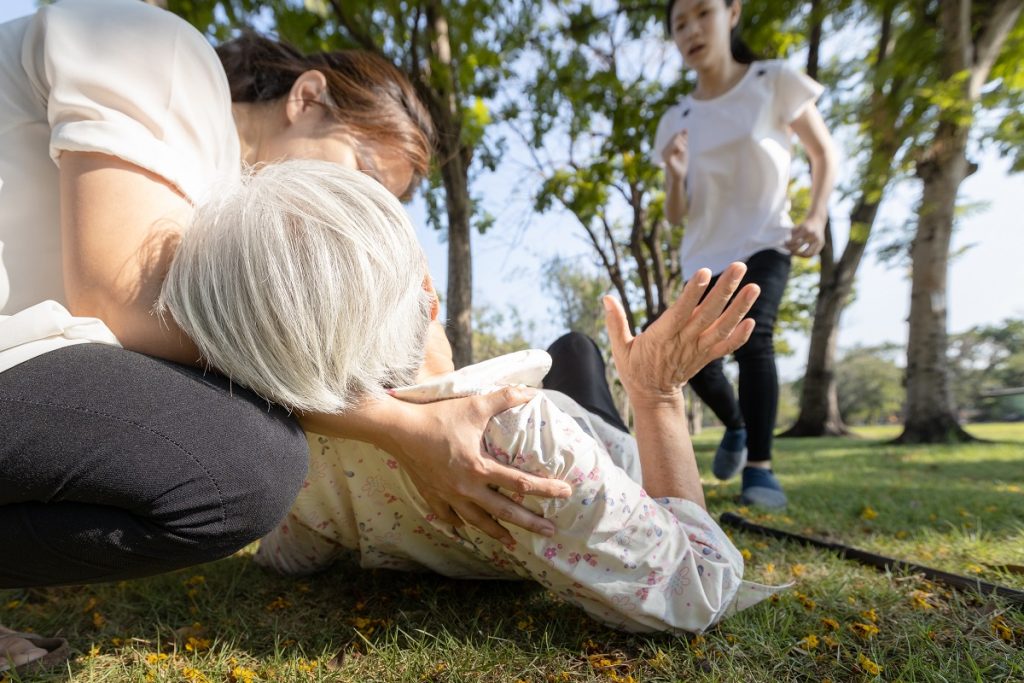
In the long run, frequent dehydration can lead to heat-related illnesses, seizures, low blood volume shock, and constipation. It’s also one of the risk factors for acute renal failure and urinary tract infection (UTI).
If someone has dementia like Alzheimer’s disease, it can heighten their cognitive impairment (e.g., confusion, poorer concentration). Unfortunately, dehydration is also a pressing issue in nursing homes, where most residents battle cognitive decline. In a study published in the Journal of the American Geriatrics Society (J Am Geriatric Soc), inadequate or poor supervision is a great risk of dehydration.
What Age-Related Changes Occur In Adults That Affect Fluid Levels?
Several physiological changes are associated with the aging process. One is the decline in kidney function and loss of renal mass, which significantly advances if there are comorbidities such as elevated blood pressure.
In an aging kidney, there is decreased renal blood flow and glomerular filtration rate. Both are important in the organ’s filtering abilities and the body’s capacity to excrete electrolytes and waste.
Body composition — including total body water — also decreases with age. Ideally, a young man’s total body water is about 65% of his body mass; it decreases to 50% by age 80. This, in itself, causes an increased risk of dehydration for older people.
Other age-related changes that impact fluid levels include defects in thirst mechanism and free-water response. As seniors feel less thirsty, it will cause them to reduce their fluid intake. Older people experience impairments in their ability to excrete a water load.
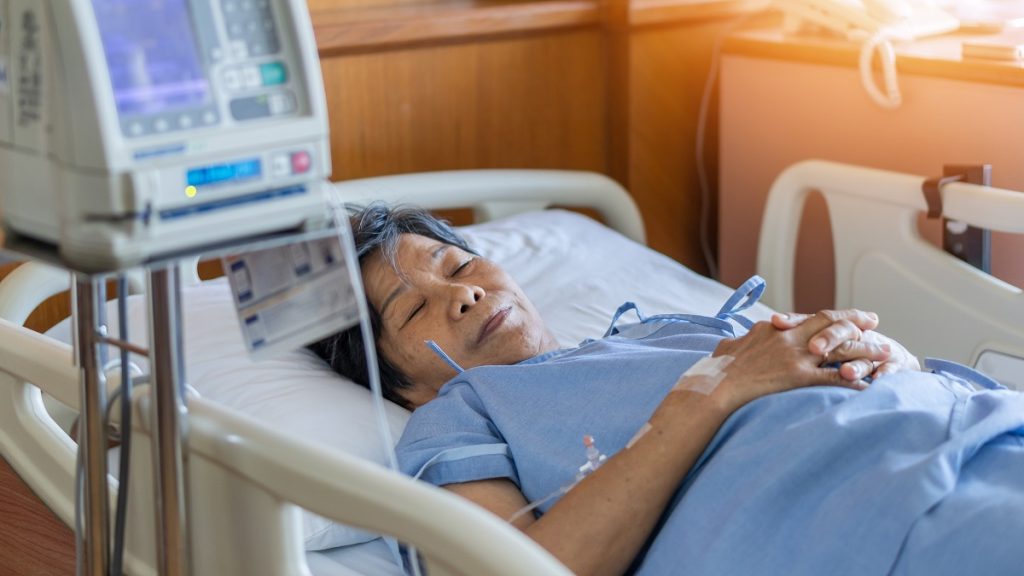
What Is Homeostasis And How Does It Change With Age?
Homeostasis is the process by which the body maintains balance in its internal environment. If there’s a disruption in a parameter (for instance, the amount of blood water increases or decreases.) In that case, the body’s homeostatic response signals respective hormones to trigger cell reactions to bring back the parameter to an average level.
However, healthcare experts note that aging and homeostasis “act in opposite directions.”
The electrolyte and fluid regulation in the body involves interactions between key hormones:
- Aldosterone, which regulates water and salt balance by stimulating absorption of sodium by the kidneys
- Antidiuretic hormone (ADH), which regulates the amount of water in the body and is responsible for urine formation
- Atrial natriuretic peptide (ANP), a hormone that boosts renal blood flow and GTR). If homeostatic function declines, their secretion is also altered. This, in turn, changes body fluid levels.
Additionally, as homeostatic response becomes less effective, the water metabolic capacity of older individuals also gets affected.
This leads to abnormalities such as hyponatremia and hypernatremia. The former means having a sodium level that is too low. The latter is a condition where the blood has a high sodium content.
Sodium plays a big role in fluid balance, blood pressure maintenance, and maintaining normal homeostasis at the cellular level.
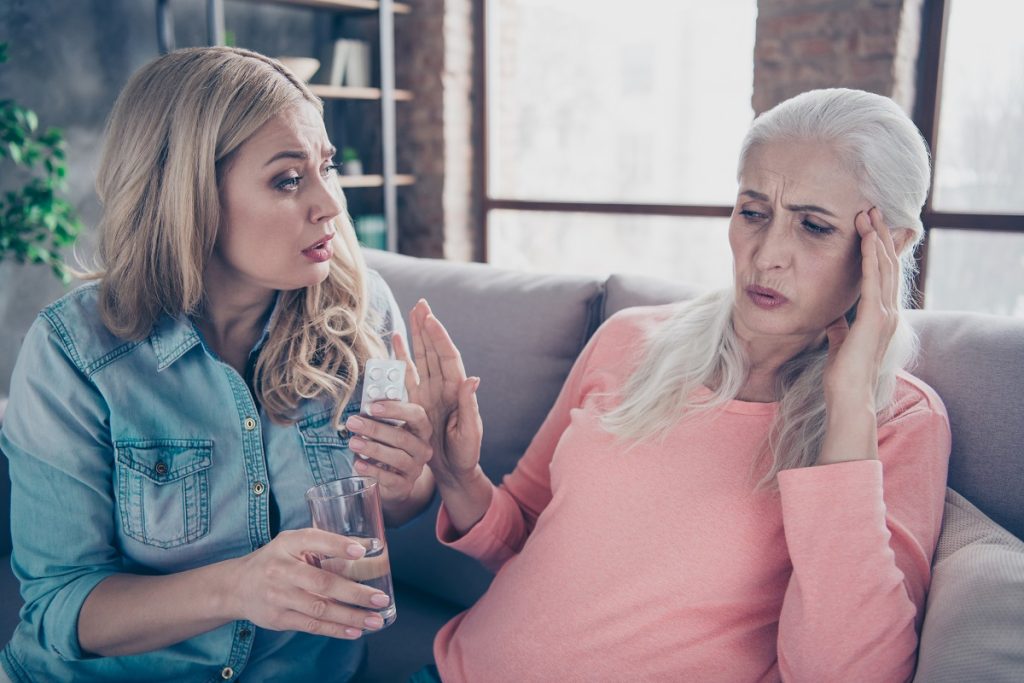
Why Aren’t Seniors Thirsty?
Observe your elderly parents; you’ll notice that they’ll become less thirsty as they age. This is caused by several environmental, behavioral, psychological, and physiologic mechanisms.
Apart from the aforementioned decrease in kidney mass, these are some age-related culprits behind this phenomenon:
- Altered thirst threshold. Lesions in the cortex (outer brain surface) can cause thirst deficit. It means that even if someone is given access to water, they won’t drink enough to bring back osmolality to pre-water deprivation levels.
- Opioid peptides. These peptides — hormones and neuromodulators in the central nervous system — control fluid ingestion. Researchers argue that these substances can dull one’s sense of thirst, which prompts them to drink less water than they should.
- Decreased plasma renin activity. The plasma enzyme renin is critical in the body’s regulation of thirst, blood pressure, and urine output (urine is composed of water, urea, calcium, and other waste substances).
Seniors may also decrease fluid intake due to their fear of urinary incontinence. It can also be caused by limited mobility or simply a lack of access to water.

What Changes Occur In The Kidney And Bladder?
Renal function decreases with age in about 30% of the US population.
In older adults, the kidney tissue decreases, resulting in a decline in renal function, sodium reabsorption, and potassium secretion. Along with it, the nephron — the kidney’s filtering units — decreases, causing the organ to become more incapable of filtering waste material from the blood and in the tubular handling of creatinine.
As people grow older, blood vessels that lead up to the kidney tend to harden. This makes its filtering function slow down further.
As for the bladder (another essential part of the urinary system), aging causes its tissues to become more rigid and its muscles to weaken. As this organ becomes less elastic, its capacity to hold urine will also decrease.
What Is the Result Of Changes To These Organs?
As the kidney and bladder undergo age-related changes, older people will be more likely to develop conditions like UTI, bladder control problems such as leakage or incontinence, and chronic kidney disease.
In the long run, affected people can also develop renal hypertension or hypotension as a result of their kidney dysfunction. Hypertension complications include heart failure and aneurysm, while hypotension can cause renal failure and pulmonary hemorrhage.
People with too much blood fluid and elevated blood pressure need diuretics to help kidneys make more urine.
What Changes Occur In The Skin?
With skin being the largest organ in the body, changes in it are considered the most noticeable signs of aging. The most common you’ll see are:
- Loss of elasticity
- Becomes thinner, paler, and translucent
- Becomes more fragile
- Presence of age spots
- Drying
In other cases, these changes are more than just an effect of age. They can indicate nutritional deficiencies, diabetes, kidney, liver, and heart disease, among others. For instance, kidney problems can lead to changes in your sweat glands, which leads to your skin drying out.
What Other Fluid Balance Disorders Occur In the Elderly?
Geriatric patients are prone to developing fluid balance disorders.
Research shows that there is a decreased nocturnal ADH secretion in the elderly. Low ADH levels lead to greater urine production, which can cause dehydration and low blood pressure.
Aging is also associated with a decline in urinary concentrating capacity, which is caused by an impaired renal tubular response to ADH. This, again, can lead to excessive urine formation.
When the kidney ages, it becomes less capable of conserving sodium, which causes too much sodium excretion in the urine. Medically, this is referred to as natriuresis.
Nocturnal polyuria (or high urine volume at night) is also more common in older patients. One of its causes is having a high-sodium diet or drinking too much fluid before going to bed.
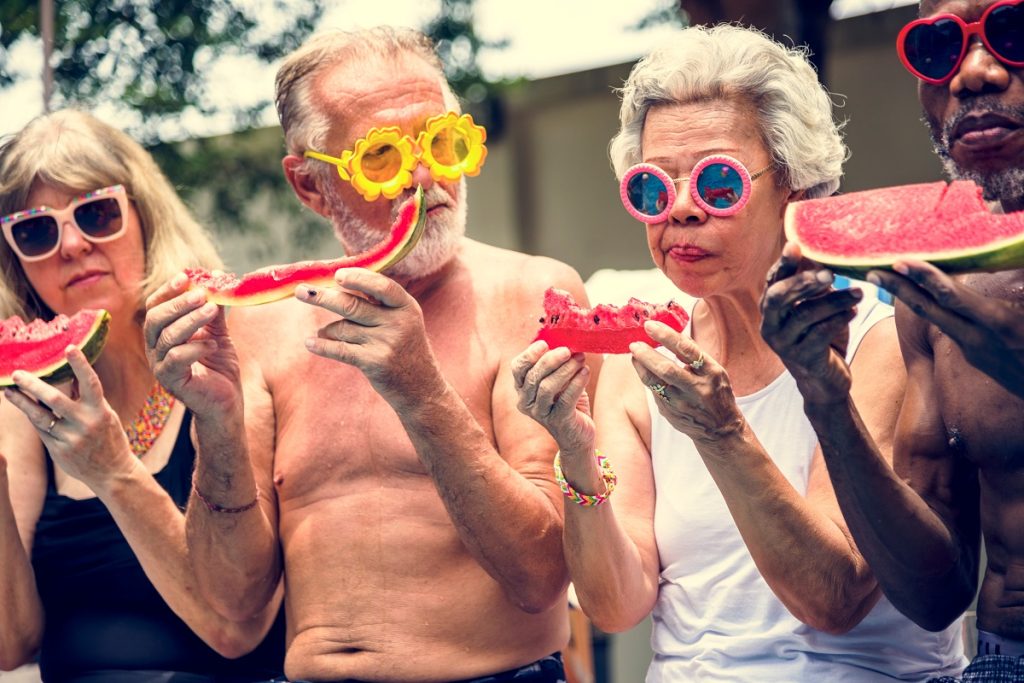
How Much Water Should Seniors Drink?
The common wisdom that people should drink eight glasses of water a day has been replaced with a more specific formula for seniors. After calculating one-third of their body weight, they should drink that many ounces in fluids. Some of that water will come from other foods consumed throughout the day. Someone who weighs 150 pounds needs to drink the equivalent of 50 ounces of water to stay healthy.

